

Tao Te Ching
Tao Te Ching
Chapter 2The Wordless Teachings
Chapter 2
When seduced by an image of beauty,
We create ugliness.
If that becomes beautiful, this becomes ugly.
When impressed by an image of goodness,
We create badness.
If this becomes good, that becomes bad.
Form & emptiness arise together:
Difficult & easy complement each other,
Long & short shape each other,
High & low contrast each other,
Note & noise harmonize each other,
First & last, before & after, back & front –
All follow each other.
Therefore the wise
Perform effortless deeds,
Practice wordless teachings,
Teach without saying anything.
And without grasping and fixation,
As the ten thousand things arise and dissolve,
They hold without owning,
Create without claiming,
Work without taking credit,
Accomplish without attachment.
What arises lasts forever because
Letting it go makes it stay.
Commentary
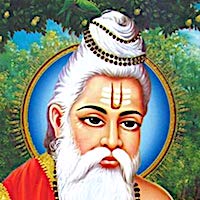
“Never engage in action for the sake of reward… alike in success and defeat.”
Comments: Click to comment

“When the words come from within, when you are freeing an idea, then the words are powerful. They give life to the thought. They can ignite a fire in another person’s mind.”
Comments: Click to comment

“Take everything that happens as it comes, as something to animate, not to appropriate”
Comments: Click to comment

“Because he lays claim to no credit, the credit cannot be taken away from him.”
Comments: Click to comment

“Do not say a little in many words but a great deal in a few.”
Comments: Click to comment
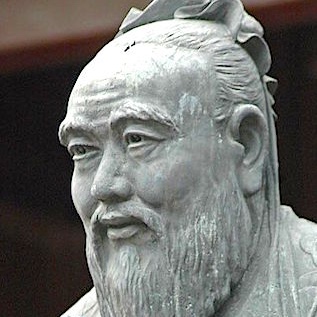
“At 15, I set my mind and heart on learning. At 30, I stood on my own. At 40 I had no doubts. At 50 I knew heaven’s decree. At 60 my ears were in accord. At 70 I followed the desires of my mind -and-heart.”
Comments: Click to comment
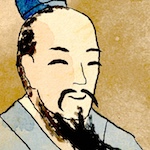
“To act without needing a reason… to ride the current of what is – this is the primal virtue.”
Comments: Click to comment

“The words of arguments are all relative. To reach the absolute, the truth, we have to harmonize opposites and follow their natural evolution.”
Comments: Click to comment

“Achievement is the beginning of failure. Fame is the beginning of disgrace.”
Comments: Click to comment

“To act without needing a reason… to ride the current of what is – this is the primal virtue.”
Comments: Click to comment

“Balance is the beginning of the Way. Emptiness is the heart of the way.”
Comments: Click to comment

“Silence at the proper season is wisdom, and better than any speech.”
Comments: Click to comment

“We are not disturbed by what happens to us, but by our thoughts about what happens to us.”
Comments: Click to comment

“We’re not disturbed by what happens to us – only by our thoughts about what happens to us”
Comments: 1 comment

“Whoever sees the nature of one thing sees the nature of everything because the emptiness of one thing is the emptiness of everything.”
Comments: Click to comment

“The words printed here are concepts. You must go through the experiences.”
Comments: Click to comment
 “Ignorance and wisdom are identical, not different.”
“Ignorance and wisdom are identical, not different.”
Comments: Click to comment

“A monk asked Dongshan, "What is Buddha?" Dongshan said, "Three pounds of flax."”
Comments: Click to comment
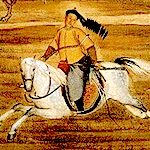
“When right and wrong, other and self exist in their midst, love and hate will arise and attach each other. When love and hate arise and attack each other, warfare will flourish.”
Comments: Click to comment

“From the play of pure knowledge and endless space, I weave cloth of perfect insight into emptiness.”
Comments: Click to comment

“The foolish reject what they see and not what they think; the wise reject what they think and not what they see.”
Comments: Click to comment
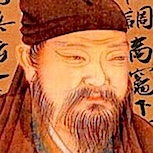
“Sages create but do not possess what they create. They succeed but do not claim success. Because they do not lose themselves, they do not lose others.”
Comments: Click to comment
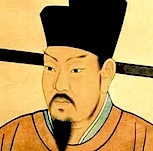
“All depends on time and occasion, nothing is eternal. Therefore sages act without effort, teach without words, 'good and bad' don't enter their minds.”
Comments: Click to comment

“Losing something is the result of possessing something. How can people lose what they don't possess?”
Comments: Click to comment

“The best signs of success are a decreasing of self-centeredness.”
Comments: Click to comment
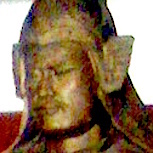
“Lao-tzu's 5000-word text clarifies what is mysterious as well as what is obvious. It can be used to attain the Tao, to order a country, or to cultivate the body.”
Comments: Click to comment
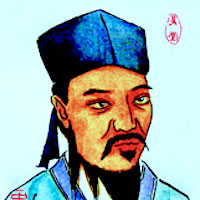
“All existence involves contrasting pairs. When one is present, both are present. When one is absent, both are absent.”
Comments: Click to comment

“As the Godhead is nameless, and all naming is alien to Him so also the soul is nameless; for it is here the same as God.”
Comments: Click to comment

“There is no air or water, no creation or creator, no earth, air or space, no guru or disciple, no easy or difficult path.”
Comments: Click to comment

“Many people are good at talking and bad at understanding,”
Comments: Click to comment

“Reputation is an idle and most false imposition; oft got without merit, and lost without deserving.”
Comments: Click to comment
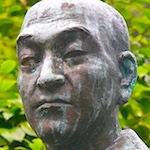
“When you understand that my poems aren’t really poems, then we can talk poetry together.”
Comments: Click to comment

“Poetry is the first and last of all knowledge - it is as immortal as the heart of man.”
Comments: Click to comment

“Don’t trust intellectual teachings, recognize that vast and unborn sameness.”
Comments: Click to comment

“The art of not reading… remember that he who writes for fools always finds a large public. A precondition for reading good books is not reading bad ones: for life is short.”
Comments: Click to comment
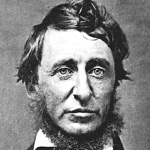
“Why should we be in such desperate haste to succeed and in such desperate enterprises? If a man does not keep pace with his companions, perhaps it is because he hears a different drummer.”
Comments: Click to comment

“what is success without failure? what is a win without a loss? what is health without illness? you have to experience each if you are to appreciate the other. there is always going to be suffering. it’s how you look at your suffering, how you deal with it, that will define you.”
Comments: Click to comment

“According to a notion of the early Christians, the devil would like to ‘play the part of God’. According to Lao-Tzu’s theory, the nature of the devil consists exactly in the attempt of acting the part of God.”
Comments: Click to comment
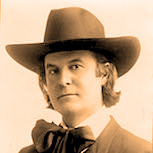
“The line between failure and success is so fine. . . that we are often on the line and do not know it.”
Comments: Click to comment
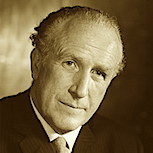
“He that is slow to believe anything and everything is of great understanding, for belief in one false principle, is the beginning of all unwisdom.”
Comments: Click to comment

“opposites always balance on the scales – a sign of high culture. One-sidedness, though it lends momentum, is a mark of barbarism.”
Comments: Click to comment

“I have been and still am a seeker, but I have ceased to question stars and books; I have begun to listen to the teaching my blood whispers to me.”
Comments: Click to comment
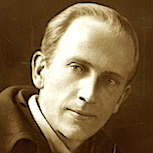
“It is more fun to talk with someone who doesn't use long, difficult words but rather short, easy words like ‘What about lunch?’”
Comments: Click to comment
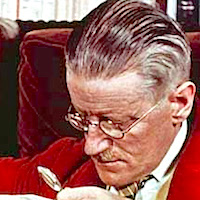
“though a day be as dense as a decade, no mouth has the might”
Comments: Click to comment

“Every man is a creature of the age in which he lives and few are able to raise themselves above the ideas of the time.”
Comments: Click to comment
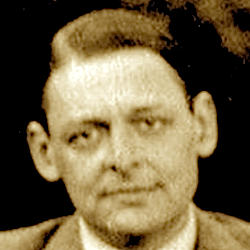
“Success is relative. It is what we make of the mess we have made of things.”
Comments: Click to comment

“For every traveller who has any taste of his own, the only useful guidebook will be the one which he himself has written.”
Comments: Click to comment

“One believes things because one has been conditioned to believe them, finding bad reasons for what one believes for other bad reasons.”
Comments: Click to comment

“The constant assertion of belief is an indication of fear.”
Comments: Click to comment
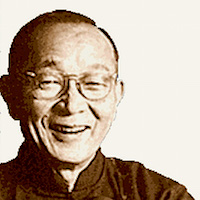
“The principle of leveling of all opposites, and the theory of cycles and universal reversion to opposites are basic for the understanding of Lao Tzu and Chuang Tzu philosophy and its practical teachings. All Lao Tzu's paradoxes arise from this point of view.”
Comments: Click to comment
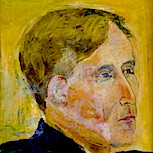
“By admitting the conception of goodness, you are simultaneously creating a conception of badness.”
Comments: Click to comment

“Just as modern mass production requires the standardization of commodities, so the social process requires standardization of man, and this standardization is called equality.”
Comments: Click to comment
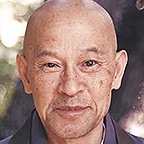
“From emptiness, everything comes out. One whole body of water, or one whole mind, is emptiness. When we reach this understanding we find true meaning to our life.”
Comments: Click to comment
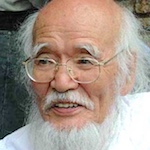
“There is no one so great as the one who does not try to accomplish anything.”
Comments: Click to comment
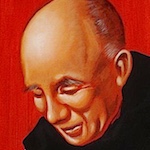
“Chuang Tzu agrees with the paradox of Lao Tzu, ‘When all the world recognizes good as good, it becomes evil’ because it becomes something that one does not have and which one must constantly be pursuing until, in effect, it becomes unattainable.”
Comments: Click to comment

“This verse celebrates the relativity of reality, thereby aligning itself with modern science, especially Einstein's theory of relativity.”
Comments: Click to comment
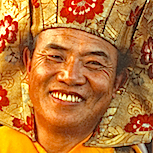
“The most powerful, smallest and largest thing in the universe is the mind.”
Comments: Click to comment

“Success and failure are greatly overrated. But failure gives you a whole lot more to talk about.
”
Comments: Click to comment

“The passageway into the world of shamans opens up after the warrior has learned to shut off his internal dialogue.”
Comments: Click to comment

“To believe that our beliefs are permanent truths which encompass reality is a sad arrogance.”
Comments: Click to comment

“Success is like reaching an important birthday and finding you're exactly the same.”
Comments: Click to comment
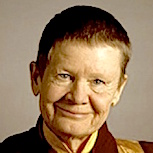
“As long as our orientation is toward perfection or success, we will never learn about unconditional friendship with ourselves, nor will we find compassion.”
Comments: Click to comment
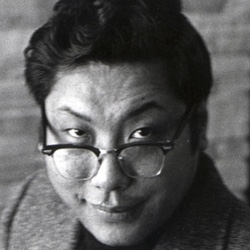
“Form is empty of our preconceptions, empty of our judgements… Form is empty if we see it in the absence of our own personal interpretations of it.”
Comments: Click to comment

“I'm not going to change the way I look or the way I feel to conform to anything. I've always been a freak. So I've been a freak all my life and I have to live with that, you know. I'm one of those people.”
Comments: Click to comment
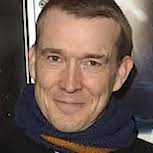
“So winners are the real losers because they learn nothing?… If losers can exploit what their adversaries teach them, yes, losers can become winners in the long term.”
Comments: Click to comment

“The sage […] realizes that things arise of their own accord, and not as the result of her own coercion or anxious striving […] so she does not feel any sense of ownership over the result of her actions.”
Comments: Click to comment

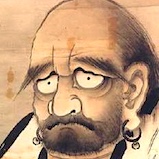
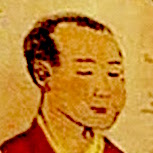

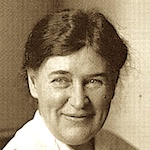

Comments (1)